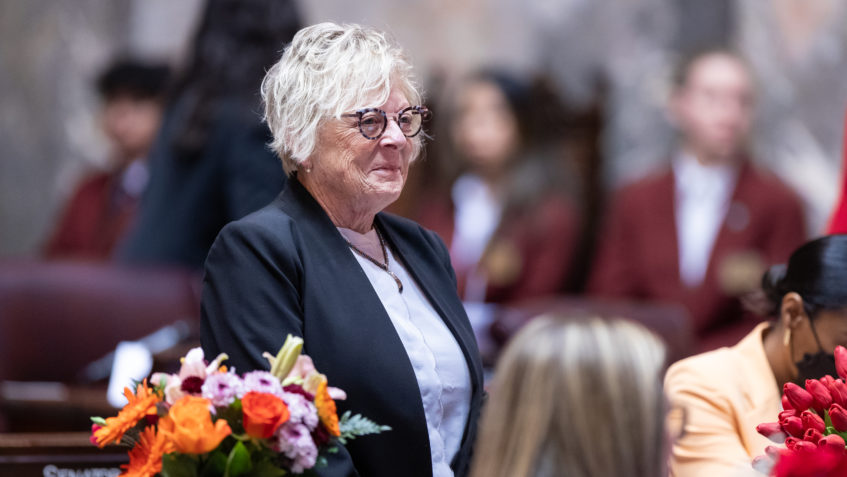Legislation heard today by the Senate Early Learning & K-12 Education Committee would add training and staff to help educators better deal with the increasing incidence of disruptive and sometimes violent outbursts by students.
“Teachers, administrators and other school staff have limited tools available to them to preserve safety at a time when students are more frequently showing up in school acting out unmet needs and trauma in ways that risk serious injury to others,” said Sen. Claire Wilson (D-Auburn), the sponsor of SB 5966. “Our teachers need better support in these situations and our students need an environment that is safe and allows them to concentrate on their education free of distraction or disruptions.”
Wilson’s bill prioritizes the need for clear definitions, additional training for school staff, including administrators and school boards, and sets clear guidelines on the use of restraints and isolation. Its priorities are to expand training and to clarify when isolation or restraint might be necessary and the ways they may be applied.
“Our schools have an urgent need for training and clear, consistent guidelines on how to address disruptive behavior, including better knowledge on the part of educational leaders who will ultimately judge how these situations are handled,” Wilson said. “Everyone in a school building deserves a safe, positive climate that emphasizes de-escalation tactics and where restraint or isolation are last resorts used only in emergencies and under very specific, clear guidelines.”
Prior to winning election to the Senate in 2018, Wilson served for 25 years as an administrator in early education and family involvement. She has also taught pregnant and parenting teens and was a school board director for eight years. In 2023, she was instrumental in the passage of a proviso directing the superintendent of public instruction to gather feedback from educators and other stakeholders to identify needs in training, staffing and support.
“These are complicated, highly charged conversations, and it’s critical that we get it right with a thoughtful, deliberative public process,” she said. “It’s imperative that we ensure the safety of students and staff and anyone else in our buildings, and we must do so in ways that don’t inadvertently make things more unsafe for students.”

